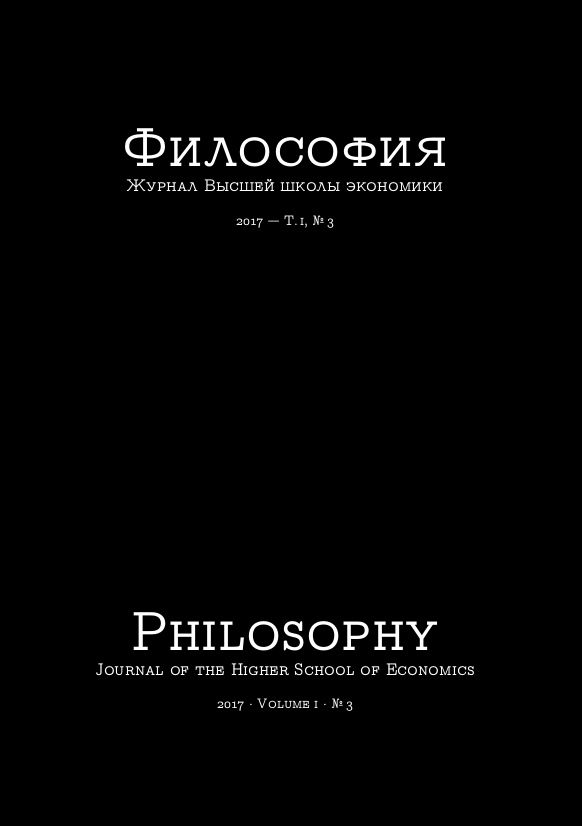Онтологические и методологические принципы феноменологического подхода Эдмунда Гуссерля
Аннотация
Признавая оправданность множества интерпретаций феноменологии Гуссерля, автор статьи предлагает и обосновывает собственный подход к философии Гуссерля, основанный на работах К. Хельда, В. И. Молчанова и Л. Тенгели. С этой целью, прежде всего, формулируются онтологические предпосылки философии Гуссерля, которые определяли его исследования, хотя и не всегда эксплицитно формулировались самим феноменологом. К таким предпосылкам относится, в первую очередь, признание существования мира как совокупности предметов, их свойств и отношений. Далее автор останавливается на принципах и методах феноменологического исследования. При этом принимаются в расчет не только и не столько декларации принципов Гуссерля им самим, но их конкретное применение и осуществление в реальной феноменологической работе. В результате этого формулируются «новые» (не названные самим Гуссерлем) принципы феноменологического подхода и переосмысляются «старые» и хорошо известные. В статье особое внимание уделяется методу эпохé и принципу работы в двух установках: естественной и феноменологической. Так, одной из важнейших функций эпохé автор считает выявление и фиксацию предпосылок естественной установки, часть из которых переносится в феноменологическую установку. В статье также показывается, как онтологические и методологические предпосылки Гуссерля проявляются в его исследованиях, посвященных конкретным предметным областям — изучению сознания или разрешению проблем теории познания и изучения окружающего мира. В ходе этих рассмотрений автор обозначает моменты, в которых Гуссерль отходит от своих принципов и следует другой, конструктивистской стратегии. Речь идет, прежде всего, о понимании интенциональности, понятиях смысла и ноэмы и применении метода редукции. В заключении, оценивая собственную стратегию исследования философии Гуссерля, автор обозначает свой историко-философский подход как презентизм.






